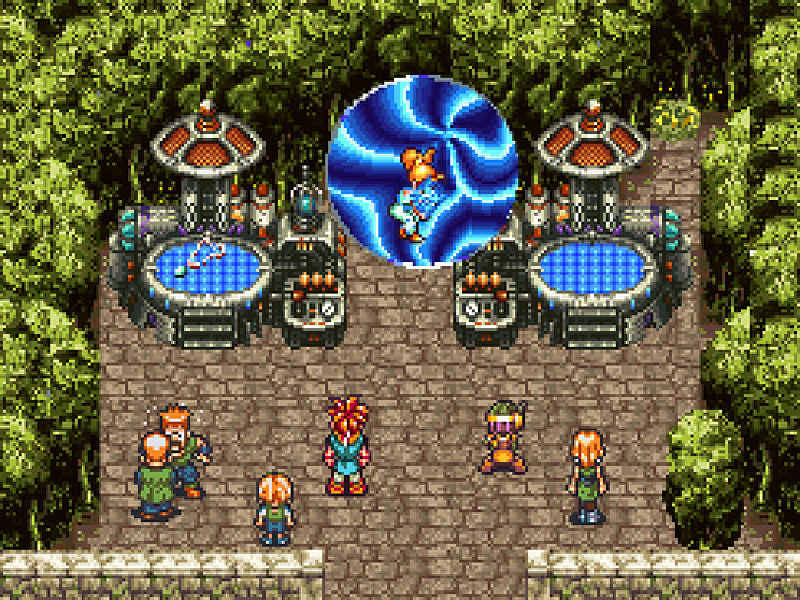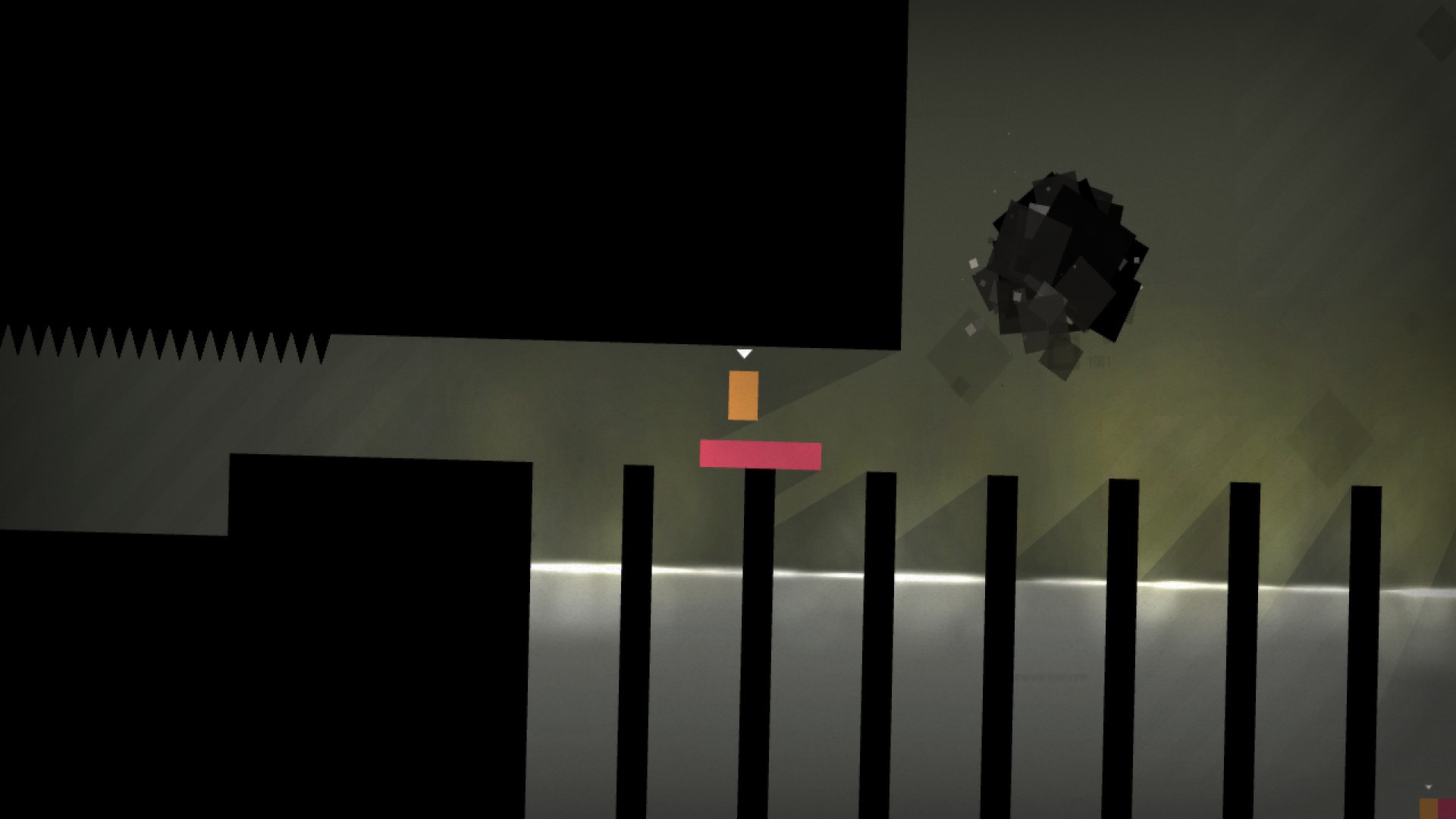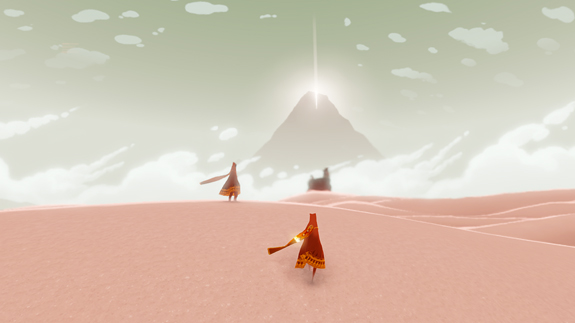This post has not been edited by the GamesBeat staff. Opinions by GamesBeat community writers do not necessarily reflect those of the staff.
Warning: Please keep in mind there may be some plot spoilers for these games below.
Art. Music. Film. Literature. These mediums can inspire, awe, and evoke emotional responses from those who are passionate about them. Oftentimes, people can even turn to them to help them from feeling down or alone. But what about video games?
As a medium, video games have evolved at an astonishingly rapid pace. In my lifetime, games have gone from pixelated shapes and bloops-and-beeps to the incredible lifelike visuals and epic scores they feature today. More important than aesthetics, though, is the capability games now have to tell a story and make us feel something as we play them.
This is a personal story about five games that have helped me to cope with loneliness and depression. The games mentioned in this story are, to me at least, exemplary titles that illustrate what makes the medium so special. Whether reminding me to appreciate the simple things, showing me that I am not ever truly alone, or simply evoking a sense of childhood wonder and nostalgia, these games have a hold a special place in my heart.
Flower

Thatgamecompany’s second PSN exclusive title was released on the PS3 in 2009, and on the PS4 and Vita in 2013. Around the time I purchased it, I was going through a pretty difficult time. The person I was engaged to had just left me, and I was living alone in the apartment we had shared. Since it was hard for me to be alone in the house, I would go out and drink almost every night, oftentimes coming home intoxicated and feeling worse than I had before I went out.
I remember reading an article online about someone having a friend whose mother had recently passed away due to cancer. The person in the article invited their friend over to play video games, to help them get their mind of off things. When the friend arrived, the person suggested they play Flower. The article explained how this person and their friend sat silently, just enjoying the beauty and simplicity of the game, occasionally looking over at each other and smiling, and when the friend left, they looked like a weight had been lifted from them.
The article inspired me to give Flower a try. So instead of going out that night, I fired up my PS3 and downloaded it. I played the game in its entirety in one sitting. In the final scenes, I had tears streaming down my face, but for the first time in a long time, it wasn’t because I was sad. Somehow, playing Flower filled me with appreciation for my life. It was such a simple game. There were no monsters to fight, no weapons, no leveling up. All I had to do was be the wind, glide through fields of grass, collect more petals. And in the final stages when the beautiful fields were replaced by gray concrete and metal, I delighted at painting the world with my petals, and pushing the broken and twisted pieces of the stage out of my path to continue my ascent.
The music also brought a lot of emotion to the game. Composer Vincent Diamante’s stirring score was 50% of what made my play through so emotional. Designer Jenova Chen wanted to create a game that acted as “an emotional shelter” and felt like “an interactive poem.” I think he succeeded. Flower was one of the first games I played that made me feel something. I played a stage of Flower every time I started feeling sad, and every time, it had the ability to make me feel better.
I stopped going out and drinking every night, and little by little, I learned that I could get out my rut, if I just allowed myself to understand it, and then, let it go and move on. Maybe I would have gotten over it eventually, but Flower definitely helped, and I still go back to it when I’m feeling a bit down.
Papo and Yo

I’ve written a lot about Papo and Yo. I applaud creator Vander Caballero and the team at Minority Media for having the courage to tell such a personal story in a video game. If you are unfamiliar with it, Papo and Yo is about a young boy named Quico and his friend Monster. Quico and Monster help each other to navigate the puzzles and platforms of the gorgeous favelas featured in the game. But when Monster eats the poisonous frogs he is so fond of, he goes into a fiery and violent rage and attacks Quico.
The game is a metaphor for Caballero’s childhood, during which his father was an abusive alcoholic. Before I had even played it, Papo and Yo was hitting close to home. My father left my mother when I was just a baby. I never saw him much. At one point my father became a victim of drug addiction and I saw him even less. Although he never hurt me physically, his absence and his addiction affected me as a child. It caused a lot of pain to my family and it was something that took me a long time to come to terms with.
In Papo and Yo, Quico is looking for a cure for Monster, and is convinced that if he finds the Shaman, he can help Monster to kick his frog habit. In the heart-wrenching finale, Quico eventually come to terms with the fact that he cannot cure Monster, and the only left to do is let him go. This was a very powerful moment in the game for me. I couldn’t keep living my life hoping that I could “cure” my father. His choices were his own, and to move forward with my own life, I, like Quico, would have to let him go.
Like Diamante’s music in Flower, the soundtrack for Papo and Yo also heightens the emotional scenes. Brian D’Oliveira’s music is beautiful, haunting, playful, and melancholy. While Papo and Yo doesn’t quite have the same “feel good” mood of Flower, it was cathartic for me. It made me think about the Monster in my own life, and reminded me that even though my own childhood wasn’t idyllic, I learned from it, am stronger for it, and, most importantly, that I am not the only one.
Chrono Trigger

Where the majority of the titles on this list have had a direct emotional impact on me in some way, Chrono Trigger helps me to cope with sadness in a different way: nostalgia. It’s safe to say that Chrono Trigger is my favorite game of all time. Even by today’s standards, it’s still a fantastic Japanese role-playing game with great music, a neat time travelling story, memorable characters, and an awesome battle system.
I first played Chrono Trigger in the winter of 1996, when I was 13. A good friend of mine lent me his SNES during our winter break, along with Chrono Trigger and Super Mario RPG. I had never played an RPG before that, as the majority of games I played were platformers or fighting games. From the moment I heard the opening title track I was floored. I stayed up late every night that winter break, traveling through different eras with Chrono, Marle, Lucca, and the rest, leveling up, learning magic, stumbling upon side quests, and saving the world from Lavos.
Chrono Trigger delighted me as a kid. And somehow, almost 15 years later, it still manages to make me feel that way. Whenever I come home from a not so great day at work, or I’m feeling alone or sad, all I have to do is slap Chrono Trigger into my 3DS and visit my old friends. I’m a sucker for nostalgia, I’ll admit. But something about Chrono Trigger always reminds me of that winter, in Brooklyn, playing in my little bedroom, bundled up in blankets and staying up late without a care in the world besides learning Luminaire and getting the Rainbow Sword. Once again, I absolutely have to mention the music, as Yasunori Mitsuda and Nobuo Uematsu were the first game composers that made me go out and purchase a video game soundtrack. Even listening to CT’s score is enough to fill me with a sense of calm and sink into memories of better times.
Journey

Yes, another PSN exclusive title, and another game developed by Thatgamecompany. Journey has been lauded since its release in 2012 for being a visually stunning, aurally provacitive, and emotionally charged game. As with Flower, Thatgamecompany was once again able to create a game experience that was unique and awe inspiring. Journey eschews traditional narrative and tutorials, and instead gives the player the freedom to simply explore and enjoy their experience. The choice of including a multiplayer mode that groups players with a random partner, without the ability to communicate with words, is also noteworthy. At first, I wanted to play through Journey alone, but after reading about so many positive interactions between players, I caved and tried it out. Every time, without fail, players would point in the direction of hidden secrets, patiently wait for me if I fell behind, and refused to press on to the next stage without me. It really made me think twice about online gaming communities and their generally negative connotations.
Like Flower, Journey is the kind of game that focuses less on a definitive goal, and places greater emphasis on simply enjoying the experience. I play through Journey at least once a month now, and every time feels like the first time. I’m always filled with a sense of wonder, and constantly awed by the visuals and music. Playing through Journey with a partner online always makes me feel like I’ve shared that experience with someone. And now that I have played through it so many times, I have a chance to guide others to the secret areas and patiently wait for them if they fall behind.
Journey’s soundtrack is nothing short of brilliant. Composter Austin Wintory was even nominated for a Grammy for the game’s score. Like Chrono Trigger’s soundtrack, I can always depend on Journey’s music to relax me. Because of its brevity, Journey is a great game to play through over and over, and nothing beats playing through the game beginning to end with the same partner, and walking through that last door together.
Thomas Was Alone

It took me a while to finally get around to Thomas Was Alone. It was originally released for the PSN April 2013, but I only just finished it a few days ago. I’d heard great things about it, but it wasn’t until my girlfriend recently moved out of our apartment (she is attending a law program overseas) that I purchased it. I figured, hey, I’m alone too, Thomas. Let’s do this. The timing couldn’t have been better.
For some, Thomas Was Alone may look like a simple puzzle platformer, and at its core, it is. But what makes it special is how developer Mike Bithell and narrator Danny Wallace were able to endow the characters – which are all presented as polygon shapes — with so much personality. Not just Thomas, but all of the characters are coming to terms with identity, purpose, and relationships. I certainly never expected to care so much about the fates of squares and rectangles, but I did.
The music, once again, greatly enhances the experiences. Sometimes gloomy, sometimes uplifting, composer David Housden’s soundtrack makes use of both chip tune sounds and instrumentation to stirring effect, and it matches the fell of the game wonderfully.
For me, timing had a lot to do with why Thomas Was Alone helped be through a sad time. I began my play through just as my girlfriend was packing up and leaving for Europe. After living together for a few years, it was difficult to get used to be alone in the house so often. I found myself relating to these silly little blocks. As you play through the game, they begin to develop their sense of self and find meaning. When they get separated from their companions, they tend to second guess themselves. Some characters believe they are being used. Others feel they would be better off alone. And Tomas? Well, Thomas just wants to share his experiences with everyone.
While Thomas Was Alone may not have impacted me as deeply as Papo and Yo, it did serve as a little reminder to me that I am never truly alone and that almost everyone gets lonely and questions their purpose. The trick is to get out there and find someone to share that with. Fears and insecurities don’t seem that daunting when you realize that you are not the only one that has them.
As someone who has enjoyed playing video games for nearly 30 years, I could have easily made this list longer. These five titles are just a tiny sample of what video games can be. They can inspire us, remind us that we are not alone, make us feel like a kid again, and fill our heads with possibilities. I love a good book or film, and music continues to be one of the biggest inspirations in my life, but none of these things will ever come close to how these five games made me feel.

